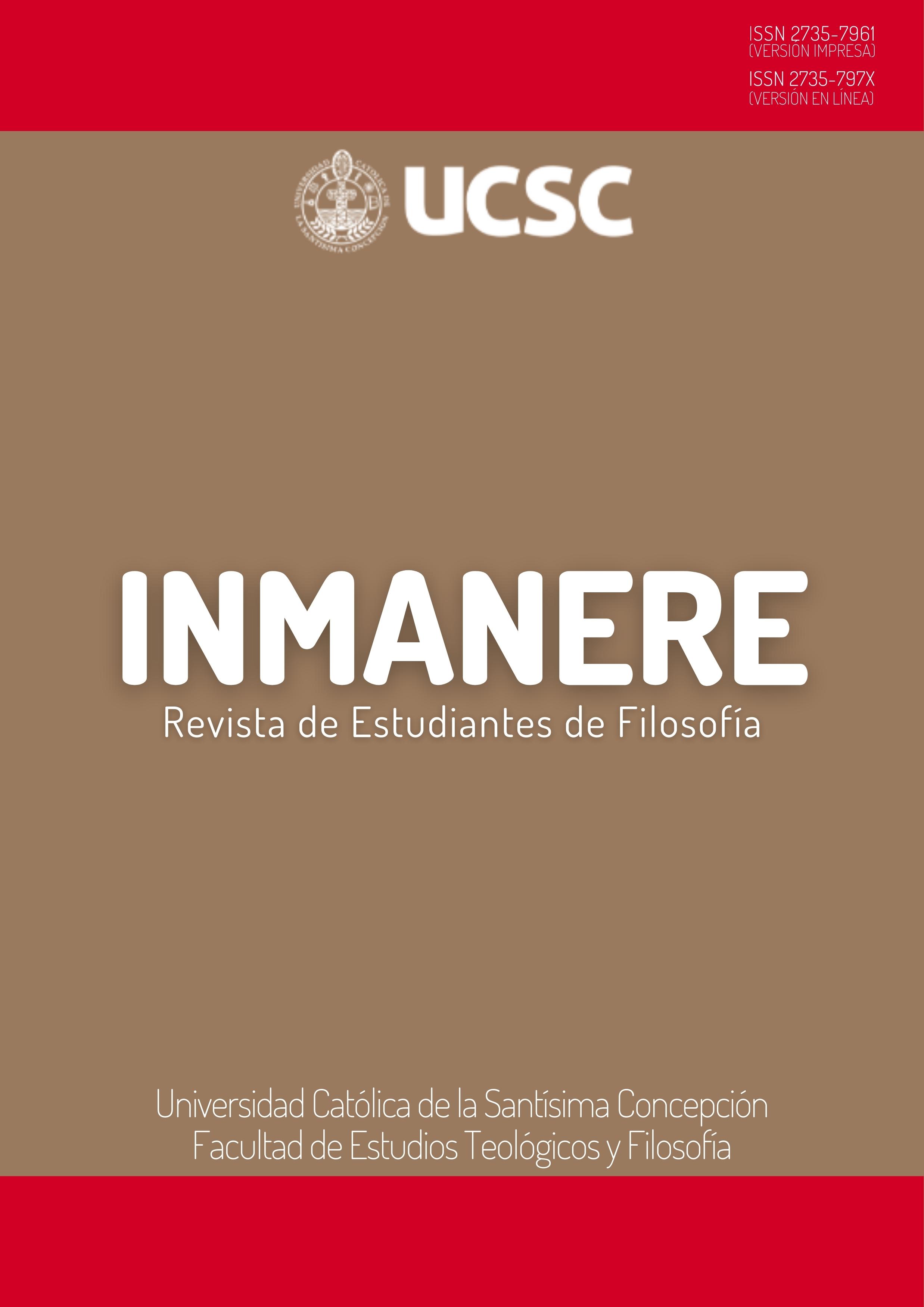Aproximación a la ética kantiana: ¿un eco de la teología protestante?
Contenido principal del artículo
Resumen
El propósito de este trabajo es examinar los principios de la Reforma Protestante, en particular la teología promulgada por Lutero, para evaluar su posible influencia en el pensamiento moral de Kant. A través del análisis de la justificación por la fe, la primacía de la moralidad sobre las obras, la reflexión sobre la condición humana y la relación con Dios, la subjetividad en la interpretación y la autonomía moral del individuo, así como la influencia de filósofos como Escoto, exploraremos las conexiones entre Kant y la Reforma Protestante. A pesar de las aparentes diferencias entre ambos, se identifican elementos esenciales compartidos en su comprensión de la moralidad y la naturaleza humana.
Detalles del artículo
Sección

Esta obra está bajo una licencia internacional Creative Commons Atribución-NoComercial 4.0.
El trabajo se encuentra licenciado bajo una Licencia Creative Commons Atribución 4.0 Internacional. Esta licencia permite la compartición y adaptación del material en cualquier medio o formato, incluso con propósitos comerciales. Es necesario otorgar la atribución adecuada, proporcionar un enlace a la licencia y mencionar si se han realizado cambios en el material. No se pueden aplicar restricciones adicionales que limiten legalmente a otros a realizar cualquier uso permitido por la licencia.
Cómo citar
Referencias
Biblia de Jerusalén. (2017). Editorial Desclée de Brouwer.
Camps, V. (2013). Breve historia de la ética. RBA.
Cassirer, E. (2018). Kant, vida y doctrina. Fondo de Cultura Económica.
Catecismo de la Iglesia Católica. (1993). Asociación de Editores del Catecismo.
Papa Pablo VI. (1965). Dei Verbum. https://www.vatican.va/archive/hist_councils/ii_vatican_council/documents/vat-ii_const_19651118_dei-verbum_sp.html
Duch, L. (1989). Parte tercera: Reformas y ortodoxias protestantes: siglos XVI y XVII. En E. Vilanova (Ed.), Historia de la Teología Cristiana II (pp. 199-520). Herder.
Ginzo, A. (2000). Protestantismo y Filosofía: la recepción de la Reforma en la Filosofía alemana. Servicio de publicaciones. Universidad de Alcalá.
González, M. (2023). Filosofía de la cruz. Ediciones UC.
Kant, I. (1981). La religión dentro de los límites de la mera razón. Alianza.
Kant, I. (1999). Prolegómenos a toda metafísica futura que haya de poder presentarse como ciencia. Editorial Istmo.
Kant, I. (2010). Antropología en sentido pragmático. Losada.
Kant, I. (2017a). Crítica de la razón práctica. Tecnos.
Kant, I. (2017b). Fundamentación de la metafísica de las costumbres. Tecnos.
Navarro, G. (2015). La influencia del protestantismo en Kant. [Trabajo de Fin de Grado, Universidad de Navarra]. Repositorio institucional Universidad de Navarra https://www.unav.es/users/TFGGuillermo%20Navarro.pdf
Miralbell, I. (2017). La herencia escotista en la filosofía política moderna. Ideas y Valores, 66 (163), 105-124. https://doi.org/10.15446/ideasyvalores.v66n163.43347 DOI: https://doi.org/10.15446/ideasyvalores.v66n163.43347
Reale, G. y Antiseri, D. (2021). Historia del pensamiento filosófico y científico. Tomo II. Herder.
Rousseau, J.J. (2007). Contrato social. Austral.




